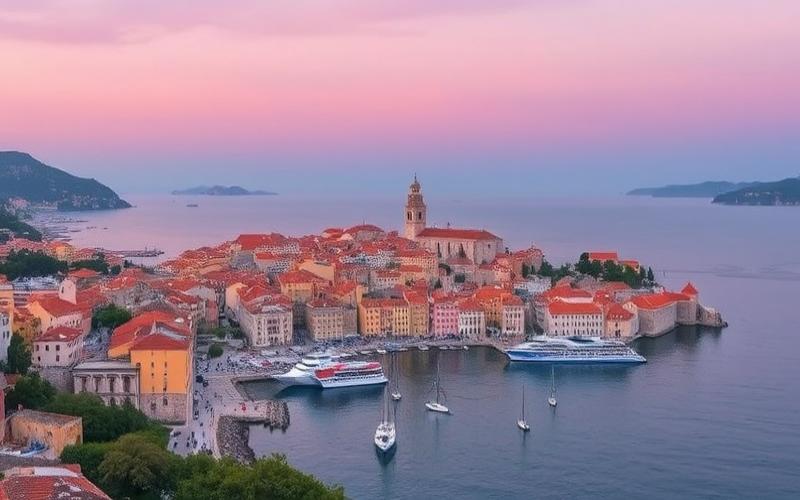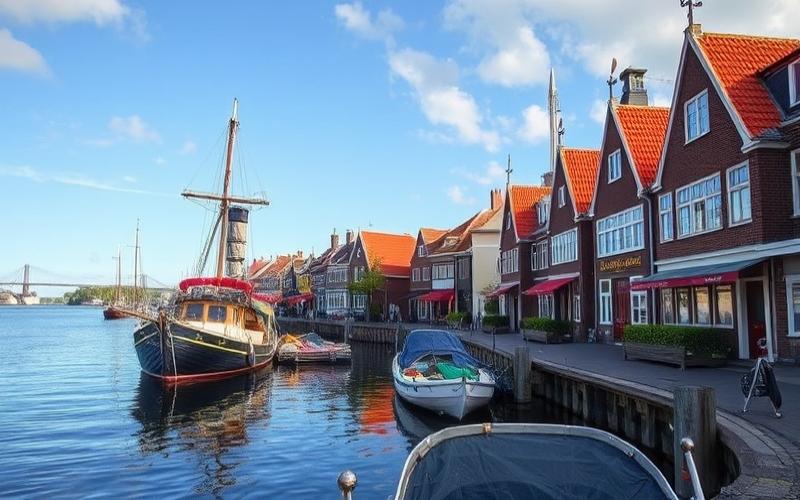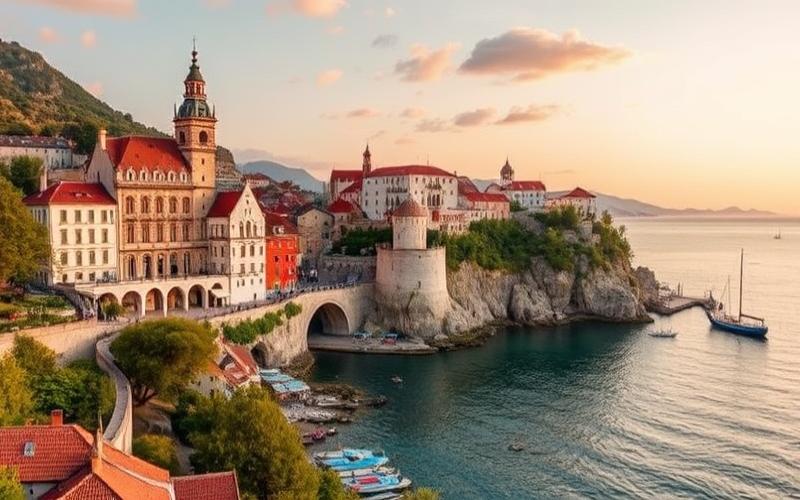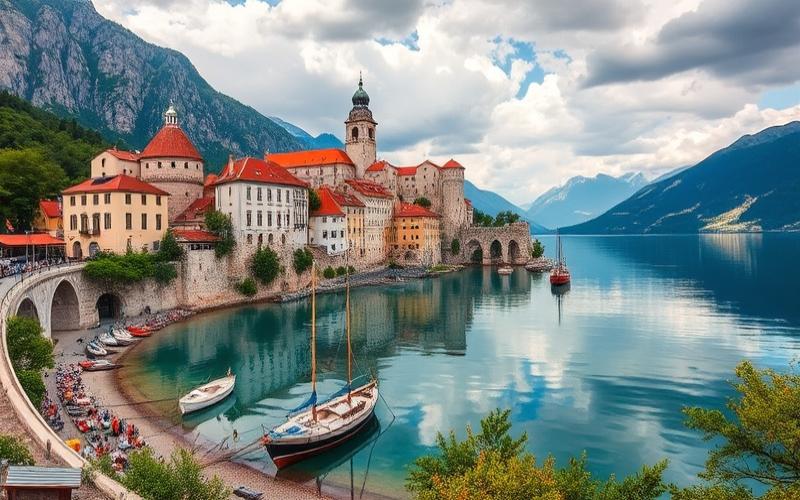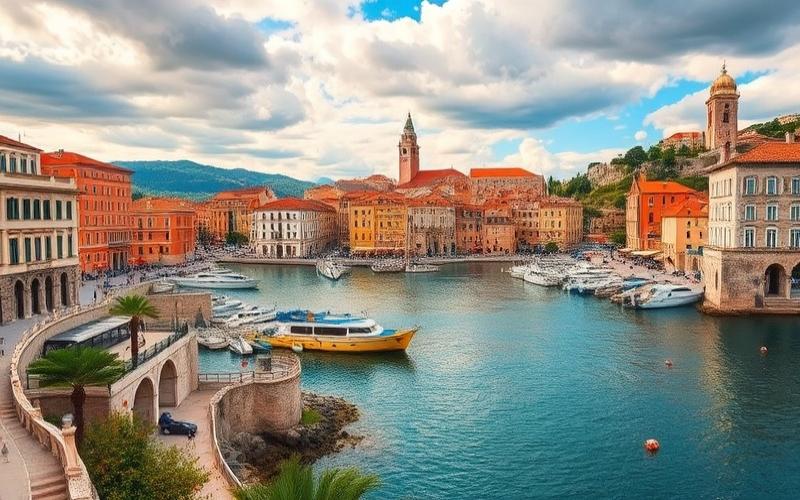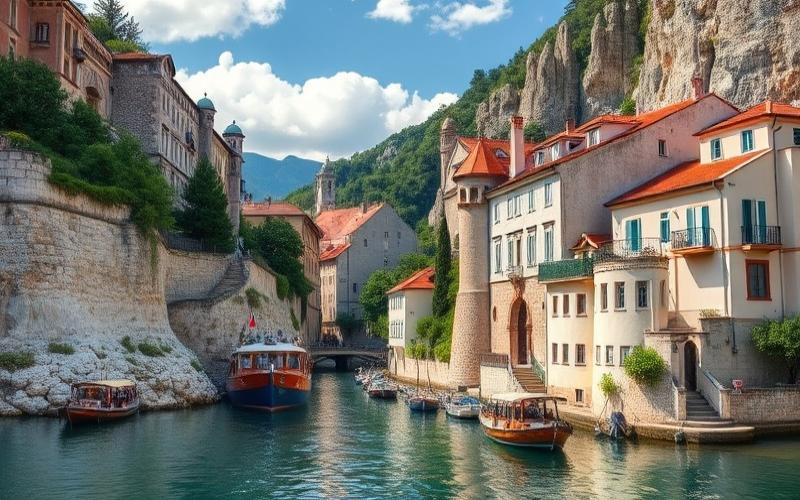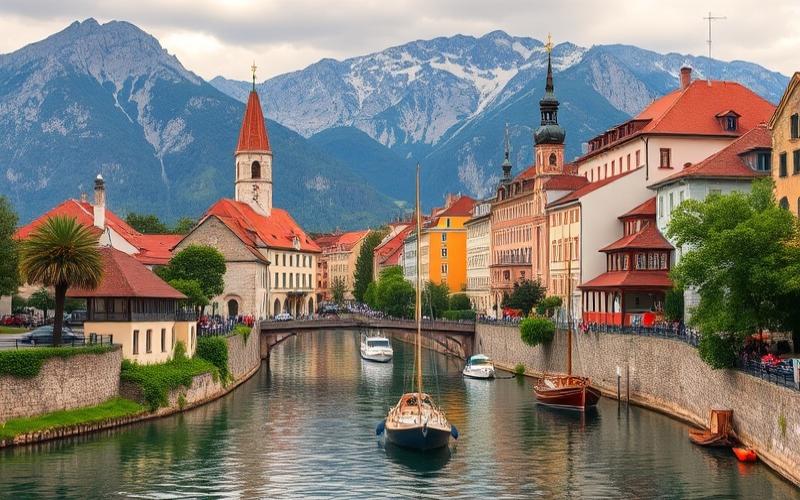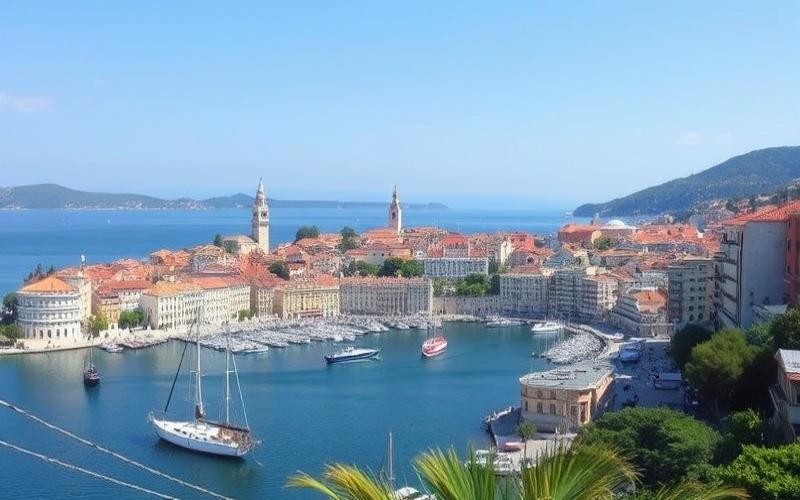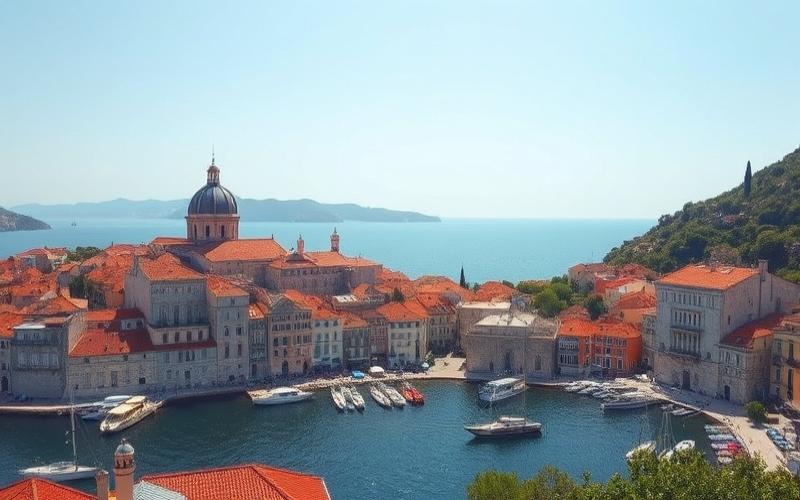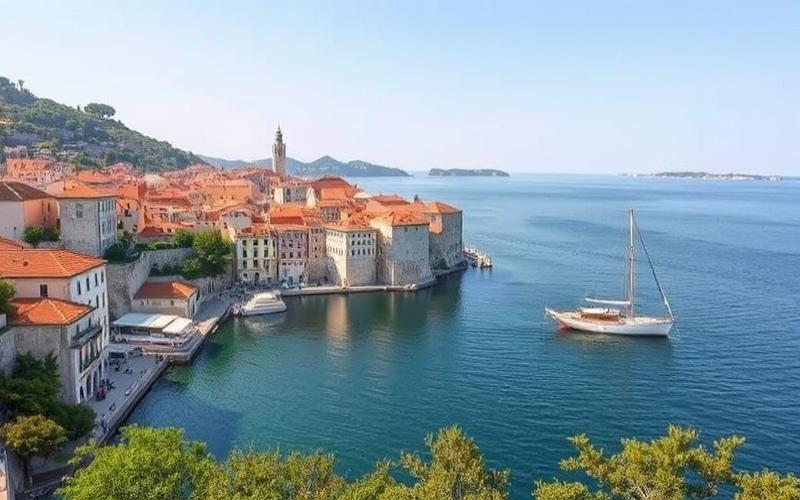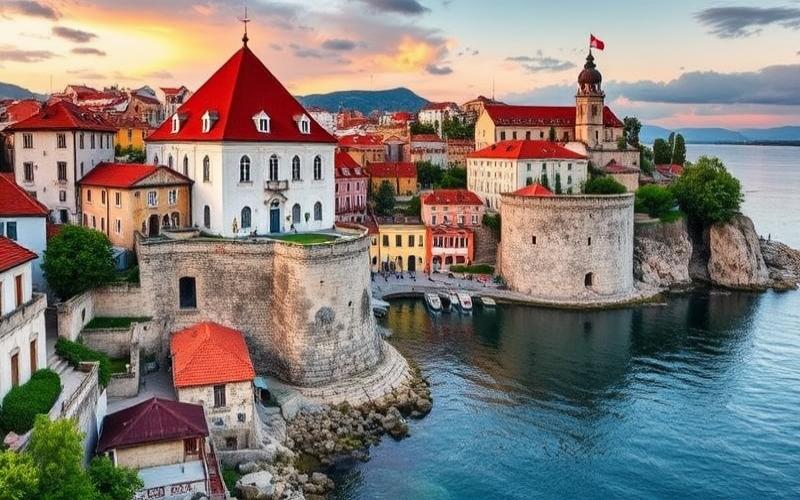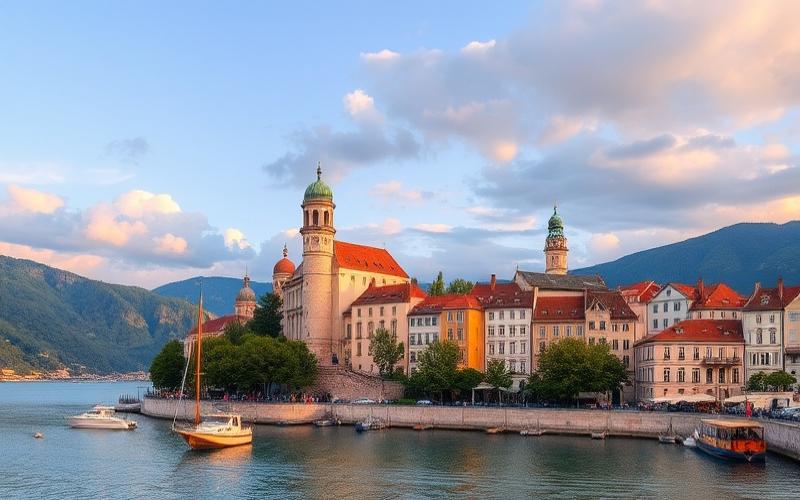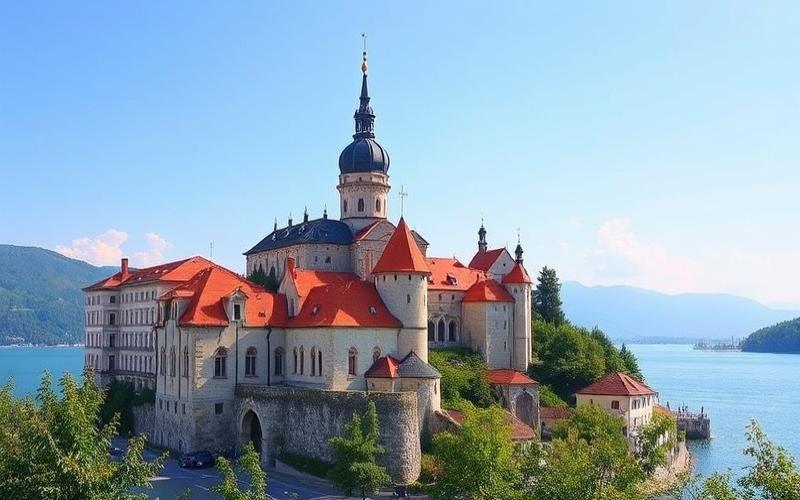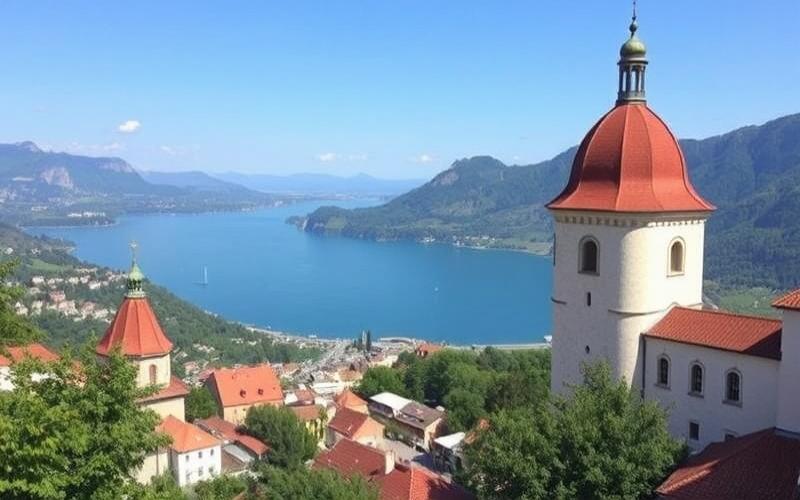
 Published on and written by Cyril Jarnias
Published on and written by Cyril Jarnias
The Rise of Student Housing in Croatia
The rise of student housing in Croatia is generating increasing interest among investors, attracted by the promise of high returns in a rapidly developing market. With a steadily growing number of domestic and international students eager to benefit from quality education, the demand for comfortable and affordable accommodation remains strong.
Beyond the country’s tourist appeal, Croatian universities are gaining reputation, thereby reinforcing the need for suitable infrastructure. As competition in traditional real estate intensifies, these modern complexes represent a unique opportunity to diversify an investment portfolio.
Good to Know:
Croatia is attracting more and more international students thanks to competitive tuition fees and a high quality of life.
A Profitable Long-Term Investment?
However, the question arises: are these residences truly a profitable investment in the long run, or can logistical and regulatory challenges hinder expected returns?
The Advantages of Student Real Estate in Croatia
Main advantages of investing in student real estate in Croatia:
- Growing demand for student housing
The continuous increase in the number of students, both local and foreign, creates significant pressure on the supply of student housing, particularly in major university cities. Zagreb, Split, and Rijeka are among the most sought-after hubs, attracting new students each year in search of modern, well-located accommodations. This dynamic ensures a high occupancy rate throughout the academic year.
- Stability and long-term return potential
The need for student housing is structural and enduring, giving this sector strong resilience against economic fluctuations. Investments in student real estate typically offer net returns between 4% and 6%, with steady long-term property value appreciation. The constant demand ensures recurring rental income and minimizes vacancy periods.
Most Lucrative Geographic Areas
| City | Main advantages for student investment |
| Zagreb | Capital city, largest university in the country, high demand for studios and apartments near campuses. |
| Split | Coastal university city, strong demand due to tourism and vibrant student life, attractive rents year-round. |
| Rijeka | Port and university city, diverse offerings, affordable rents, and strong appeal for international students. |
- Tax incentives and favorable government measures
Croatia does not levy property tax, significantly reducing operating costs for investors. Additionally, real estate capital gains are tax-exempt after three years of property ownership. The legal framework is transparent and accessible to foreign investors, who can acquire real estate without major restrictions. The country’s economic stability, combined with steady growth in the real estate sector, provides a secure environment for long-term investments.
- Concrete examples and investor testimonials
Several investors report generating stable rental income and benefiting from asset appreciation due to regular increases in square meter prices, particularly in Split and Zagreb. Some testimonials highlight the possibility of renting to students during the academic year and to tourists during the summer season, thereby maximizing annual profitability.
“Since my investment in Split, my apartment has been rented continuously, first to students and then to tourists in the summer. The property value has already increased by 15% in three years.”
Key Takeaways:
- Structurally strong and stable demand
- Attractive rental yield
- Capital appreciation potential
- Favorable tax framework and legal security
- Strategic geographic areas (Zagreb, Split, Rijeka)
Student real estate in Croatia represents a sustainable investment opportunity, combining security, returns, and asset appreciation in a context of growing demand.
Good to Know:
Investing in student real estate in Croatia offers numerous advantages due to growing housing demand, driven by a steady influx of international and local students. Popular university cities such as Zagreb, Split, and Rijeka provide stable and attractive returns, generated by students seeking quality accommodations throughout the school year. Local governments often support these investments with tax incentives that make the venture even more profitable. Consider the example of an investor who, after acquiring a property near the University of Zagreb, experienced high occupancy rates and returns on investment exceeding initial expectations. This rapidly growing market ensures long-term stability, making student real estate in Croatia an appealing option for those looking to diversify their portfolio while benefiting from an expanding sector.
Analyzing the Returns on University Residences
Financial Performance Analysis of University Residences in Croatia
| Indicator | University Residences (Croatia) | Traditional Residential Real Estate |
| Occupancy Rate | 90–98% (in major cities) | 75–85% |
| Average Revenue per Occupant | 240–350 € / month | 180–280 € / month |
| Gross Rental Yield | 5.5 to 7% | 3 to 5% |
| Annual Market Growth | +4 to +7% | +2 to +4% |
The high occupancy rates, typically ranging between 90 and 98% in major university cities like Zagreb and Split, reflect sustained demand throughout the year.
The average revenue per occupant, depending on location and level of services offered, ranges from 240 to 350 euros monthly. Residences offering additional services (WiFi, common areas, security) reach the upper end of this range.
The annual market growth for student residences is estimated between 4% and 7%, driven by the continuous increase in both international and local student numbers.
List of Main Costs Associated with University Residences:
Initial Investment:
- Land purchase: varies by city (half as expensive outside Zagreb).
- Construction: on average 1,200 to 1,700 €/m² for a standard new building with student-specific amenities.
- Additional fees: permits, architect fees (6 to 10% of total cost).
Recurring Costs:
- Annual maintenance: 8 to 12 €/m², including technical upkeep and common areas.
- Professional property management: annual commission between 6% and 8% of collected rents.
- Comprehensive collective home insurance.
Financing Opportunities:
Specific “student housing” real estate loans offered by several Croatian banks with preferential rates (2.9 to 3.7% over ten years).
Occasional government grants for new constructions meeting ecological standards or hosting a significant proportion of scholarship students. These aids can cover up to 15% of the initial cost in some cases.
Comparison with Other Real Estate Investments:
Yields are higher than traditional apartments due to near-permanent occupancy rates—very little vacancy even during summer when short-term stays by international students compensate for the temporary departure of locals.
Wealth appreciation is slower than in high-end residential real estate but offers increased stability against unfavorable economic cycles.
Geographic or Economic Factors Influencing Profitability:
- Immediate proximity to a university campus or city center
- Accessibility via public transportation
- Local tourism development favoring occupancy outside the academic season
- Local public policies encouraging international reception
Good to Know:
University residences in Croatia present interesting profitability for investors due to high occupancy rates, often exceeding 90%, and steadily growing average revenue per occupant. The market has seen a 5% increase in recent years, supported by rising demand for student housing. However, maintenance and management costs can be high, with significant initial investment required for developing new infrastructure. Financing opportunities, including some government grants, are available to support these projects. Compared to other real estate investments, student residences can offer stable returns, although their success heavily depends on geographic factors, such as proximity to university centers, and economic factors, including the country’s educational policies.
Key Takeaway:
University residences in Croatia demonstrate higher profitability than the traditional residential sector due to high occupancy rates and structurally stable demand. The initial investment remains accessible compared to more mature markets. Advantageous financial mechanisms exist to support these projects—particularly within public/private partnerships focused on social or environmental innovation.
Many international students, particularly Erasmus students, choose shared housing in Croatia due to its numerous financial, social, and cultural benefits. This preference strongly influences the demand for student housing, especially in major university cities like Zagreb.
Statistics and Housing Preferences:
| Academic Year | Number of Erasmus Students in Croatia | Main Housing Preferences |
| 2023-2024 | Approximately 2,000 to 2,500 | Shared housing, university residences, studios |
- The average budget for an Erasmus student in Zagreb is around 600€ per month.
- The average price for a multi-bedroom shared apartment is about 700€ per month, while an individual studio costs an average of 500€ per month.
- The most popular neighborhoods among international students in Zagreb are Donji Grad, Trešnjevka – Sjever, and Gornji Grad – Medveščak.
- Cost Sharing: Rent and utilities are divided, making life in Zagreb more affordable than individual housing.
- Intercultural Networks: Shared housing brings together students from various countries, fostering language exchange and cultural discovery.
- Enriching Local Experiences: Living with locals or other international students facilitates integration, learning Croatian customs, and accessing local activities.
- Social Support: Shared housing helps avoid isolation, especially upon arrival in a new city.
Impact on the Academic Real Estate Market:
- The popularity of shared housing exerts increased pressure on the student rental market, particularly in central neighborhoods near universities.
- The development of specialized platforms and student associations contributes to the rapid growth of this rental segment, with supply increasingly structured around the specific needs of international students.
- Rising rents in some sought-after neighborhoods and conversion of family apartments into shared housing.
Challenges for Property Owners:
- Managing Short-Term Contracts: Erasmus stays often last one semester, generating high turnover.
- Risk of Damage: Intensive use of properties in shared housing can lead to more repairs or maintenance.
- Cultural Diversity: Differences in lifestyles and communication can sometimes create tensions among roommates, requiring mediation or proactive management.
Improvement Prospects to Attract More International Students:
- Adapt Housing: Offer furnished, well-equipped apartments with welcoming common spaces and reliable internet connection.
- Lease Flexibility: Provide contracts tailored to the duration of academic semesters.
- Additional Services: Facilitate integration through partnerships with student associations, multilingual welcome services, and intercultural activities.
- Compliance: Adhere to safety and hygiene standards, essential for reassuring students and parents.
Shared housing in Croatia is now a preferred solution for international students, balancing financial accessibility, cultural enrichment, and local integration, while stimulating the evolution of the student real estate market.
Good to Know:
Croatia, with its natural charm and quality universities, attracts a growing number of Erasmus students, with approximately 3,000 enrolled in 2023, a majority of whom prefer shared housing. This lifestyle not only reduces housing costs, often among the lowest in Europe for well-located residences, but also fosters rich intercultural exchanges and integration through unique local experiences. However, this popularity increases pressure on the academic real estate market, where demand exceeds supply, encouraging property owners to develop more suitable accommodations. Challenges include the need to improve infrastructure to meet student expectations while ensuring comfortable living conditions, which could be facilitated by increased collaboration with universities to address the specific needs of international students.
Disclaimer: The information provided on this website is for informational purposes only and does not constitute financial, legal, or professional advice. We encourage you to consult qualified experts before making any investment, real estate, or expatriation decisions. Although we strive to maintain up-to-date and accurate information, we do not guarantee the completeness, accuracy, or timeliness of the proposed content. As investment and expatriation involve risks, we disclaim any liability for potential losses or damages arising from the use of this site. Your use of this site confirms your acceptance of these terms and your understanding of the associated risks.


